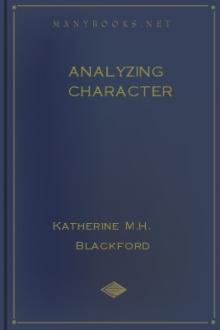Genre Philosophy. Page - 22
No registration or authorisation! And it is all for free!

fe and children,perceiving it, began to cry after him to return; but the man puthis fingers in his ears, and ran on, crying, Life! life! eternallife! [Luke 14:26] So he looked not behind him, but fled towardsthe middle of the plain. [Gen. 19:17]{19} The neighbours also came out to see him run [Jer. 20:10];and, as he ran, some mocked, others threatened, and some criedafter him to return; and, among those that did so, there were twothat resolved to fetch him back by force. The name of the one

to continue more or less during the rest of Marcus's reign. During these wars, in 169, Verus died. We have no means of following the campaigns in detail; but thus much is certain, that in the end the Romans succeeded in crushing the barbarian tribes, and effecting a settlement which made the empire more secure. Marcus was himself comanander-in-chief, and victory was due no less to his own ability than to his wisdom in choice of lieutenants, shown conspicuously in the case of Pertinax. There

r VI and his son, Cesare Borgia, the Duke Valentino, and these characters fill a large space of "The Prince." Machiavelli never hesitates to cite the actions of the duke for the benefit of usurpers who wish to keep the states they have seized; he can, indeed, find no precepts to offer so good as the pattern of Cesare Borgia's conduct, insomuch that Cesare is acclaimed by some critics as the "hero" of "The Prince." Yet in "The Prince" the duke is in point

MATTER AND SPIRIT XIV. RELIGION BY SEPARATION FROM THE QUALITIES XV. RELIGION BY ATTAINING THE SUPREME XVI. THE SEPARATENESS OF THE DIVINE AND UNDIVINE XVII. RELIGION BY THE THREEFOLD FAITH XVIII. RELIGION BY DELIVERANCE AND RENUNCIATION CHAPTER I Dhritirashtra: Ranged thus for battle on the sacred plain-- On Kurukshetra--say, Sanjaya! say What wrought my people, and the Pandavas? Sanjaya: When he beheld the host of Pandavas, Raja Duryodhana to Drona drew, And spake these words: "Ah, Guru!

tion--sofar as their qualifications warrant--into lines of work which then offerthe greatest opportunity. Only by such a system will each worker receivethe greatest income possible for himself, and also the greatest benefitspossible from the labors of all, thus continually increasing productionand yet avoiding overproduction in any single line." That the mainfeatures of the system suggested by Mr. Babson are being made the basis ofthe vocational movement is one of the most hopeful signs of

suggestions; also to Mr. A. Wohlgemuth for muchvery useful information as regards important literature. I havealso to acknowledge the help of the editor of this Library ofPhilosophy, Professor Muirhead, for several suggestions by whichI have profited.The work has been given in the form of lectures both in Londonand Peking, and one lecture, that on Desire, has been publishedin the Athenaeum. There are a few allusions to China in this book, all of whichwere written before I had been in China, and

them to the readers of the American Edition of Palmistry for All.CHEIRO. LONDON. INTRODUCTION It was on July 21, 1894, that I had the honour of meeting Lord Kitchener and getting the autographed impression of his right hand, which I now publish for the first time as frontispiece to this volume. The day I had this interview, Lord Kitchener, or, as he was then, Major-General Kitchener, was at the War Office, and to take this impression had to use the paper on his table, and, strangely enough, the

in politestudies.'CHAP. VII. Tsze-hsia said, 'If a man withdraws his mind fromthe love of beauty, and applies it as sincerely to the love of thevirtuous; if, in serving his parents, he can exert his utmost strength;if, in serving his prince, he can devote his life; if, in his intercoursewith his friends, his words are sincere:-- although men say that hehas not learned, I will certainly say that he has.'CHAP. VIII. 1. The Master said, 'If the scholar be not grave, hewill not call forth any

ount. He thought so little about it that he overlooked any mention to the family. Much later he was questioned by my youngest brother Bishnu, who noticed the large deposit on a bank statement."Why be elated by material profit?" Father replied. "The one who pursues a goal of evenmindedness is neither jubilant with gain nor depressed by loss. He knows that man arrives penniless in this world, and departs without a single rupee." [Illustration: MY FATHER, Bhagabati Charan

his expressiveness of the sky is due to certain qualities of the sensation, which bind it to all things happy and pure, and, in a mind in which the essence of purity and happiness is embodied in an idea of God, bind it also to that idea.So it may happen that the most arbitrary and unreal theories, which must be rejected as general explanations of aesthetic life, may be reinstated as particular moments of it. Those intuitions which we call Platonic are seldom scientific, they seldom explain the